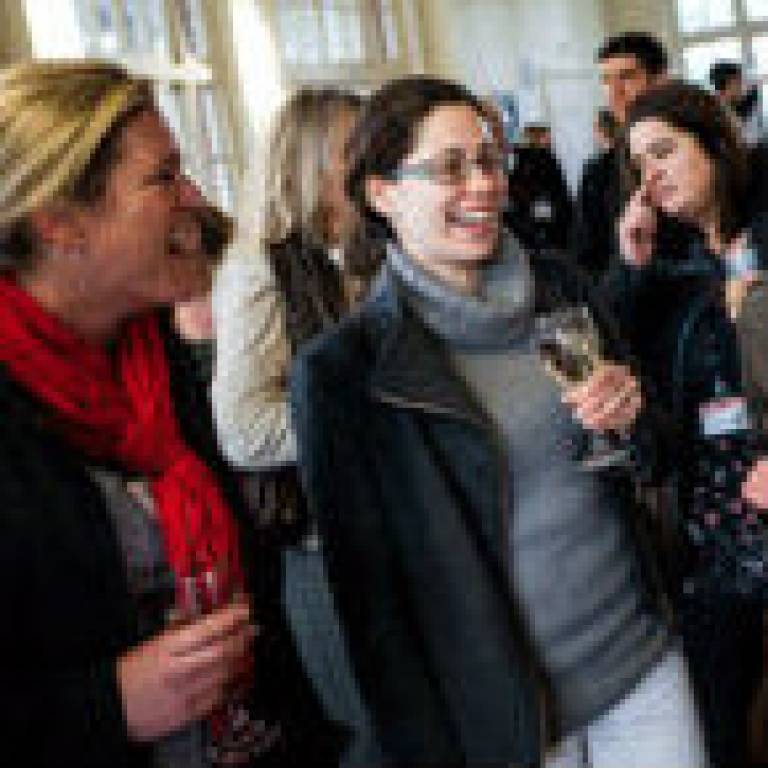Provost's View: The future of philanthropy at UCL
6 February 2014
As you will know from previous Provost's View pieces, we are currently rewriting UCL's strategy, which will define our vision and ambition for the coming decades.
 Before signposting those areas where we can make a purposeful,
positive and profound difference, we need to take stock of where we are today.
This means understanding where we have come from and how we got here. For UCL,
this is, to a significant degree, a story of philanthropy.
Before signposting those areas where we can make a purposeful,
positive and profound difference, we need to take stock of where we are today.
This means understanding where we have come from and how we got here. For UCL,
this is, to a significant degree, a story of philanthropy.
Today we are consistently ranked as one of the very best universities in the world. Perhaps it is easy to forget that private donations from the time of our foundation - whether Bloomsbury land or the buying of £100 shares - made UCL a reality. However, in more recent times our philanthropic support has not kept pace with our international standing or that of our global competitors.
Philanthropy is all around you at UCL, and it is impossible to walk more than a few minutes around our Bloomsbury campus without coming across clear evidence of it. Next time you are at the Front Lodge, take a moment to look at the Quad and reflect that it is the culmination of generations of philanthropic support. So too, opposite, are the Cruciform and the Rockefeller buildings (our Medical School crest commemorates their principal donors). More recently, the Lewis's Building on the corner of Gower Place was refurbished in 2011, thanks to generous alumni and friends.
Returning to our new strategy and what we want to achieve over the coming decades, it is clear to me that philanthropy will need to play an important and continuing role. I alluded to the next UCL fundraising campaign in my Long View of 12 December 2013. Some of you will be familiar with the concept, but by way of explanation for others, the campaign will engage people with the institution, to raise awareness of, build affinity with, and encourage affection towards UCL.
It will mobilise people to support us as ambassadors, as advocates, and, through material assistance, as donors. It is about providing the resources - financial and otherwise - to deliver our ambitious strategy and increase UCL's impact on the world.
At this moment we are in the momentum-building phase of the new campaign, which will be more ambitious and transformative than anything we have done before. This will be a new type of campaign; it will be more international in its outlook and will extend our reach beyond the traditional pool of alumni as prospective donors. It will have a strong partnership element with other institutions and with our partner hospital charities, and will change the way we identify and engage with all our supporters.
The combined effect of the campaign's fundraising and supporter engagement activities will be investment in UCL that benefits our estate, research, staff and students; and the local, national, and international community - both now and in the future.
For the campaign to be successful the entire institution needs to be engaged with it over the coming years. We have established an Internal Campaign Steering Group which I will chair, to help shape our direction and represent the breadth of UCL's ambition as we build towards a public launch.
We all have our role to play and I ask for your active support for the campaign, which I see as one of the most important strategic priorities for the next decade. I am already fully engaged: I have met many supporters since I arrived and asked them to renew or increase their support - successfully, I might add. Further, I have encountered a strong sense of pride and a desire for a continuing affiliation to UCL amongst our alumni, such as those from Life Sciences who attended a reception at London Zoo (pictured right), as well as other supporters.
The Development and Alumni Relations Office (DARO) led by Lori Houlihan will provide the professional support and help bring potential supporters to the institution. Embarking on this endeavour in a professional and coordinated way will be a key factor if we are to see the step change we need to achieve greater philanthropic support. I encourage all of you to think how you can get involved and to contact me or Lori with your thoughts.
While many institutions are turning to philanthropy because of changes to the funding of higher education, we have a long and proud tradition in which philanthropists have worked with UCL to effect change. Philanthropy has always added value to what we do, created opportunities for those who otherwise wouldn't have them, and provided the stability, confidence and freedom to pursue ambitious new endeavours that change the world.
I believe that the next campaign will have a transformative effect on the whole of UCL. By the time we conclude, we will be engaging more people and raising more money than ever before in support of our most significant priorities, providing the best platform to take us to our 200th anniversary in 2026 and beyond.
Professor Michael Arthur
UCL President & Provost
 Close
Close

